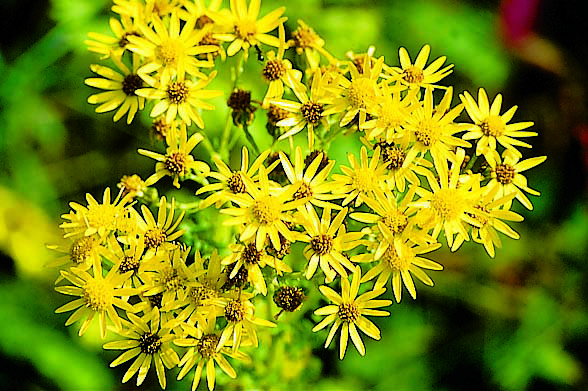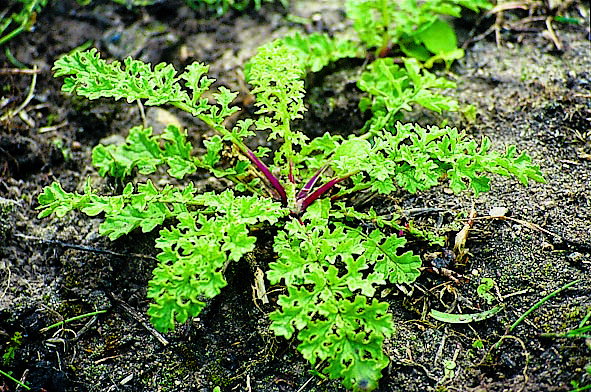September Case of the Month: A Bitter Loss
Unfortunately we have lost a pregnant mare to Pyrrolizidine Alkaloidosis, more commonly known as Ragwort Toxicity. This tragic event serves as a good opportunity to remind clients to check their pastures for weeds, particularly during the mid-summer and mid-winter periods, when grass is limited and horses are scavenging for forage. Toxicity occurs rarely from acute exposure, but rather from chronic ingestion of small doses of plant toxin that accumulate in the liver. Symptoms sometimes develop weeks or even months after exposure, even if ingestion has ceased. Symptoms of Ragwort toxicity include loss of condition, anorexia, dullness, diarrhea as well as neurologic symptoms including head pressing, aimless wandering, yawning, and difficulty breathing due to laryngeal paralysis.
In this case here on the Peninsula, the owner had a few horses out on pasture during the summer. They all appeared to be doing well, and in good health. One of these horses unfortunately must have developed a taste for ragwort, a weed that is usually unpalatable, and usually avoided. By the time she started to show symptoms of Ragwort toxicity in the fall, it was too late, her liver was failing. Despite heroic efforts, we lost mare and fetus.
Horses showing signs of toxicity rarely recover. So in the case of Pyrrolizidine Alkaloidosis, Ragwort toxicity, prevention of ingestion is not only the best treatment, it is the only option.
There are over 350 species of weeds containing Pyrrolizidine Alkaloid Toxin.
- Purple Ragwort
- Blooming Ragwort
- Nonblooming Ragwort



